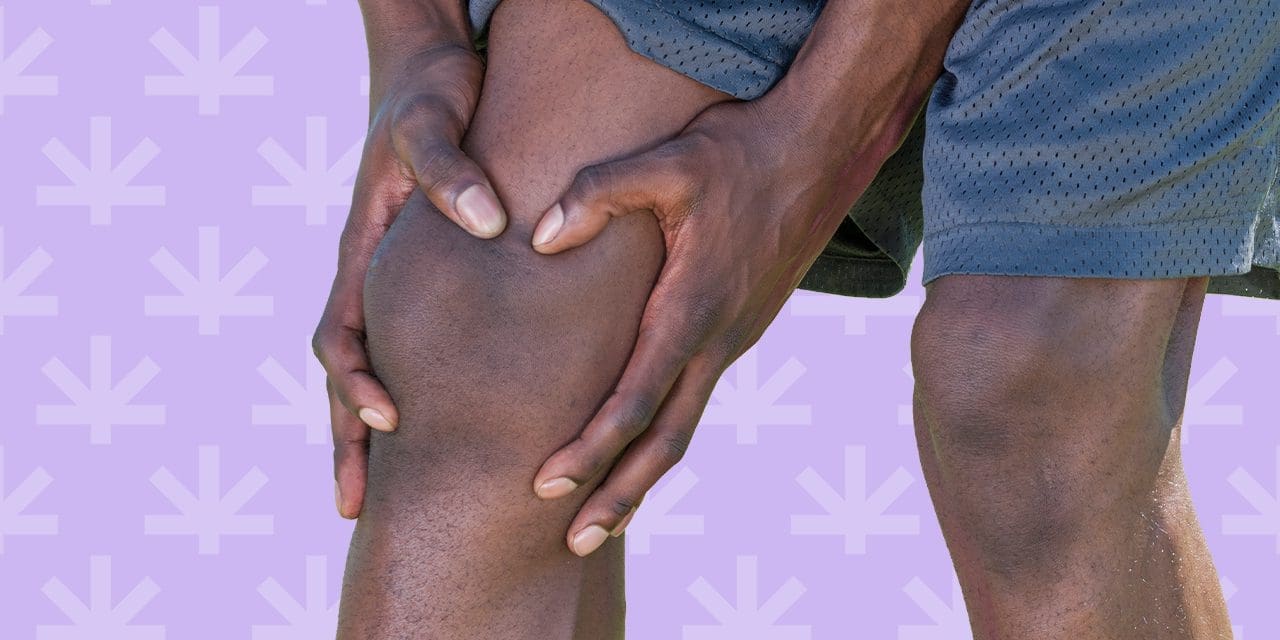Can Marijuana Help Ease Tendonitis Pain?
3 min read



Tendonitis is caused by recurring motion that aggravates a tendon and is a painful condition that usually can be eased by stopping the activity that caused it. However, stopping often isn’t a possibility for athletes or laborers who make their livelihood with repetitive motion.
The anti-inflammatory properties of cannabis help relieve tendonitis’ swelling and pain symptoms and provide an alternative remedy to rest and over-the-counter pain relief. This article looks more closely at the causes of tendonitis and how medical marijuana works to soothe its associated symptoms.
Get your medical marijuana card
Connect with a licensed physician online in minutes.
Larger purchase limits Access to higher potency strains Save up to 40% on product taxes Enhanced legal protection
What Causes Tendonitis?
Tendons are thick cords that attach muscles to bones. When a tendon becomes inflamed or irritated, tendonitis – also spelled tendinitis – occurs. The inflammation is most often caused by repetitive motion, such as in tennis or other sports, or severe injury.
Amateur and professional athletes, as well as regular people, can develop this condition. Athletes often suffer from this medical condition, with particular instances of tendonitis named tennis elbow, jumper’s knee, golfer’s elbow, swimmer’s shoulder and so on. Tendonitis is also more common in those older than 40 as tendons lose elasticity with age.
With tendonitis, visible swelling may or may not appear, but one can expect a tenderness or pain similar to an ache when the body parts. Tendonitis may also incur a loss of motion in the affected body part, particularly in the shoulders, though the exact symptoms depend on the type of tendinitis experienced.
Traditional Treatments for Tendonitis
Traditionally, physicians diagnose tendonitis with visual inspections or x-rays and prescribe medications, physical therapy and surgery as treatments for varying degrees of severity. Doctors can effectively treat tendonitis with few side effects, but a physical therapist or another specialist doctor may need to examine the injury in more severe cases.
How Marijuana Helps with Tendonitis Pain
Several research studies support the anti-inflammatory properties of medical cannabis, which supports its reported ability to soothe tendonitis pain. Recently, Maryland residents petitioned to add tendonitis to the state’s list of qualifying conditions for medical marijuana use.
Medical cannabis – particularly CBD – has been shown to help regulate the bone structure and biomechanical properties such as joint movement. In one study, CBD use showed improvements in healing broken bones in animal studies by supporting the speed and strength of the callus at the injury site.
CBD also is a notable anti-inflammatory, which could reduce swelling at the injury site with local application. Terpenes such as myrcene, humulene and beta-caryophyllene carry anti-inflammatory properties. Cannabis also reduces the sensory experience of pain or tenderness, helping make the experience of tendonitis more manageable as it heals.
How to Use Cannabis for Tendonitis
There are many different ways and methods of using cannabis to treat tendonitis. When selecting a cannabis remedy for tendonitis, it’s important to understand differences in how long each ingestion method takes to take effect, how it impacts the affected area and how long the relief lasts.
Topicals are the most obvious choice for soothing tendonitis, as they provide localized relief without the psychoactivity of smoking or vaping. Crafted in cream, lotion, salve or balm form, apply the cannabis topical to the impacted area. Relief usually kicks in within 10 to 15 minutes.
Smoking or vaping cannabis provides more instantaneous relief from the sensation of pain but includes the typical psychoactivity associated with consuming cannabis. This can be tempered by selecting a strain with higher levels of CBD.
Edibles offer a longer-lasting and more potent relief for individuals with more severe cases of tendonitis. THC in edibles is processed in the liver into a more potent 11-hydroxy-THC, which can help with disrupted sleep by mitigating more prolonged pain and providing sedative effects.
Best Strains for Tendonitis
Strains that can help soothe inflammation associated with tendonitis include:
- ACDC
- Cannatonic
- Harlequin
- Great White Shark
- Charlotte’s Web
Strains that may be useful for addressing joint pain include:
- Harlequin
- GG#4
- OG Kush
- Critical Mass
However, there isn’t necessarily a particular strain or variety of cannabis that works better for tendonitis than another. What works for you may not work for someone else. One person may require more CBD, another more THC.
The Bottom Line
Tendonitis can cause symptoms ranging from annoying to severely painful, but cannabis thankfully offers relief to mitigate symptoms when needed. While the condition often goes away on its own with rest, medical marijuana can be a helpful aid in relieving the discomfort, pain or stiffness associated with it.
Get Your Medical Card
Connect with a licensed physician online in minutes.
Larger purchase limits Access to higher potency strains Save up to 40% on product taxes Enhanced legal protection


